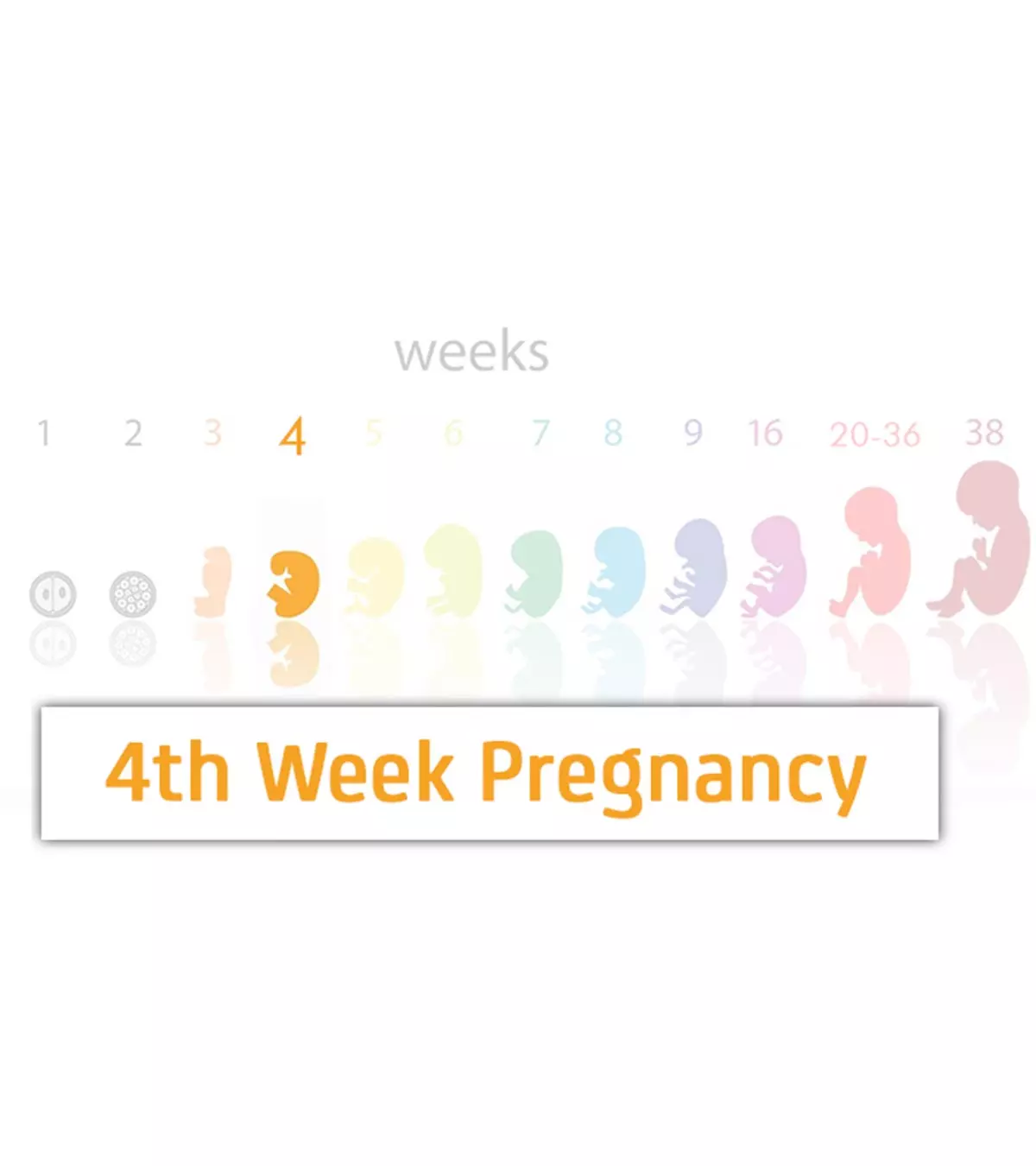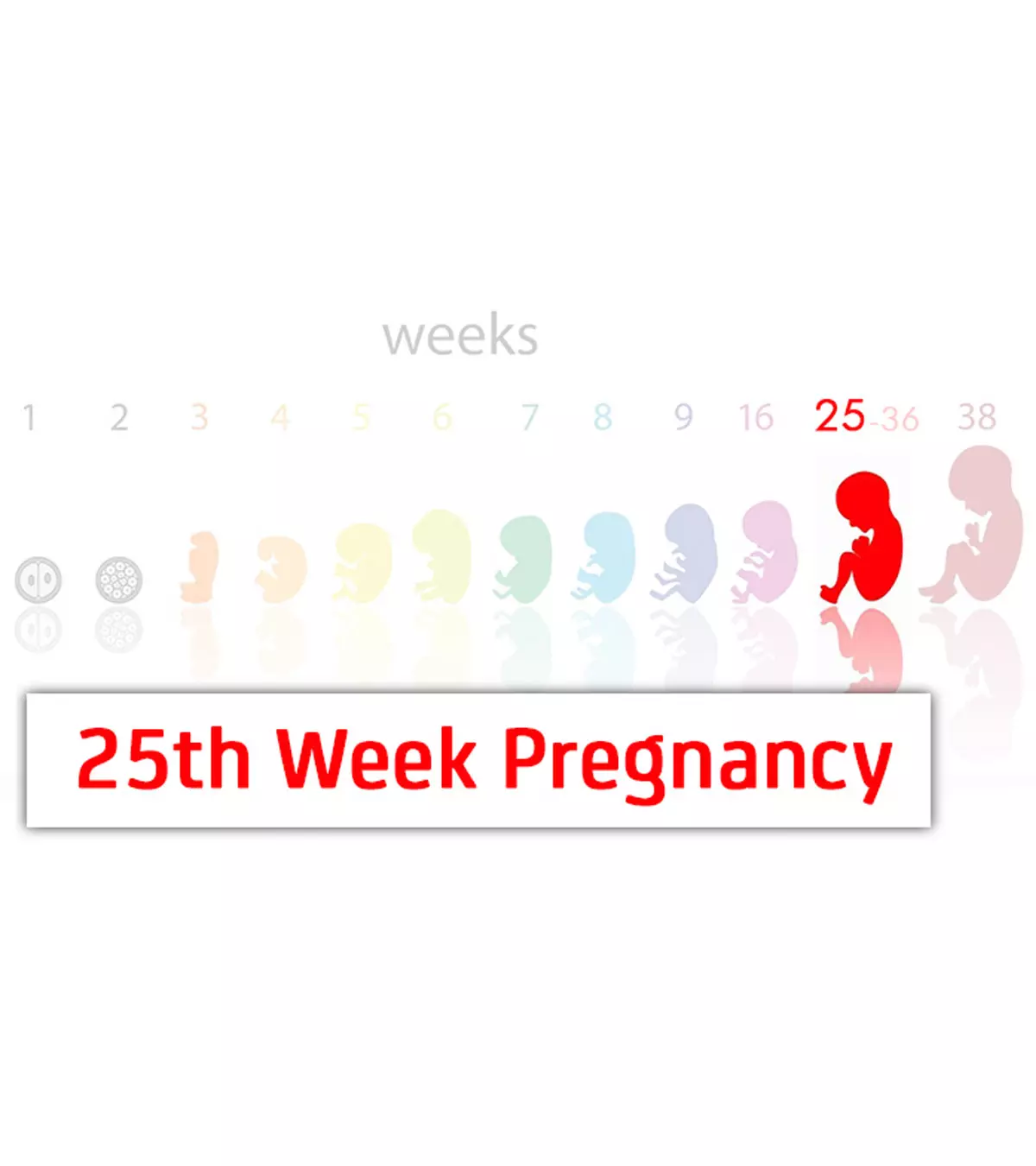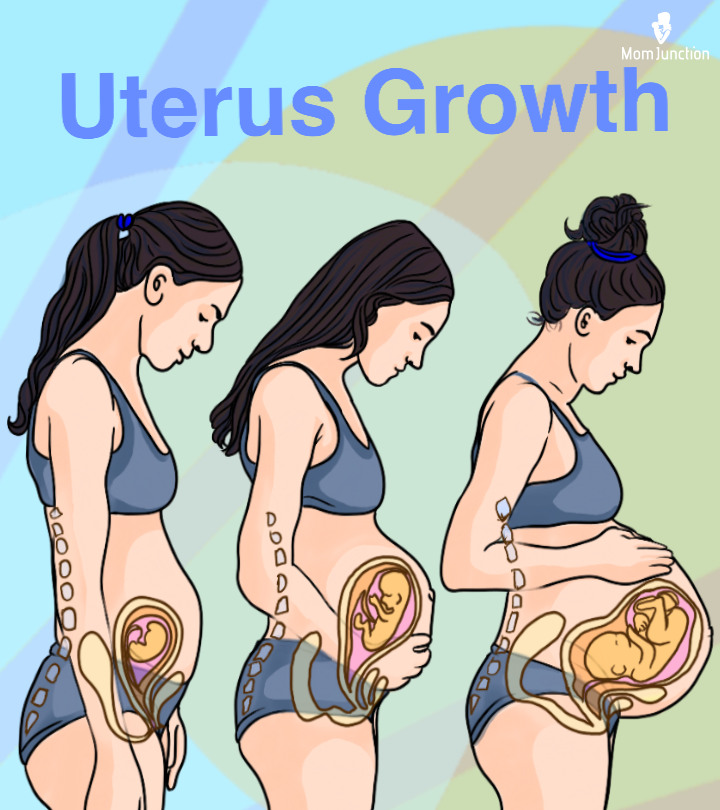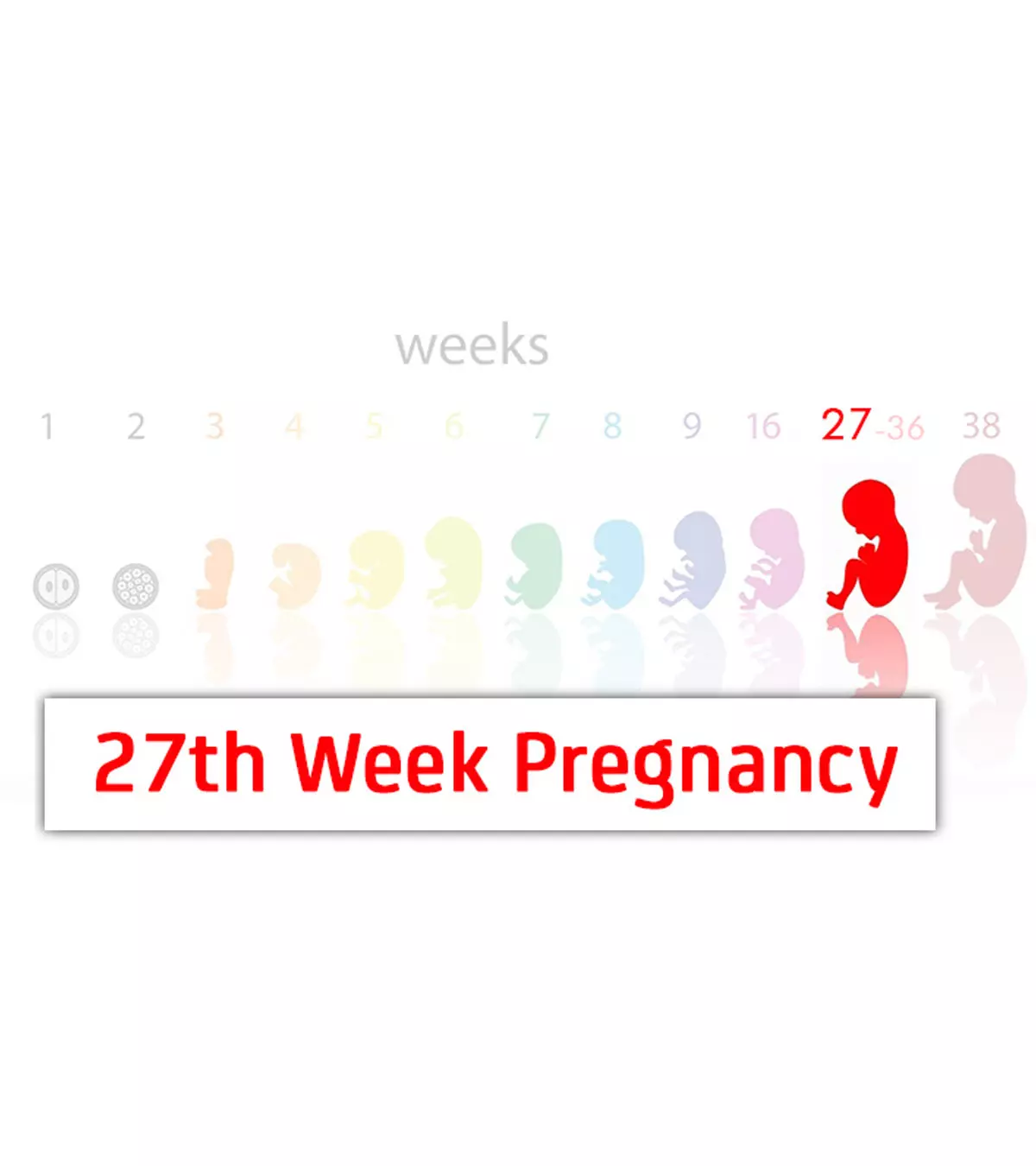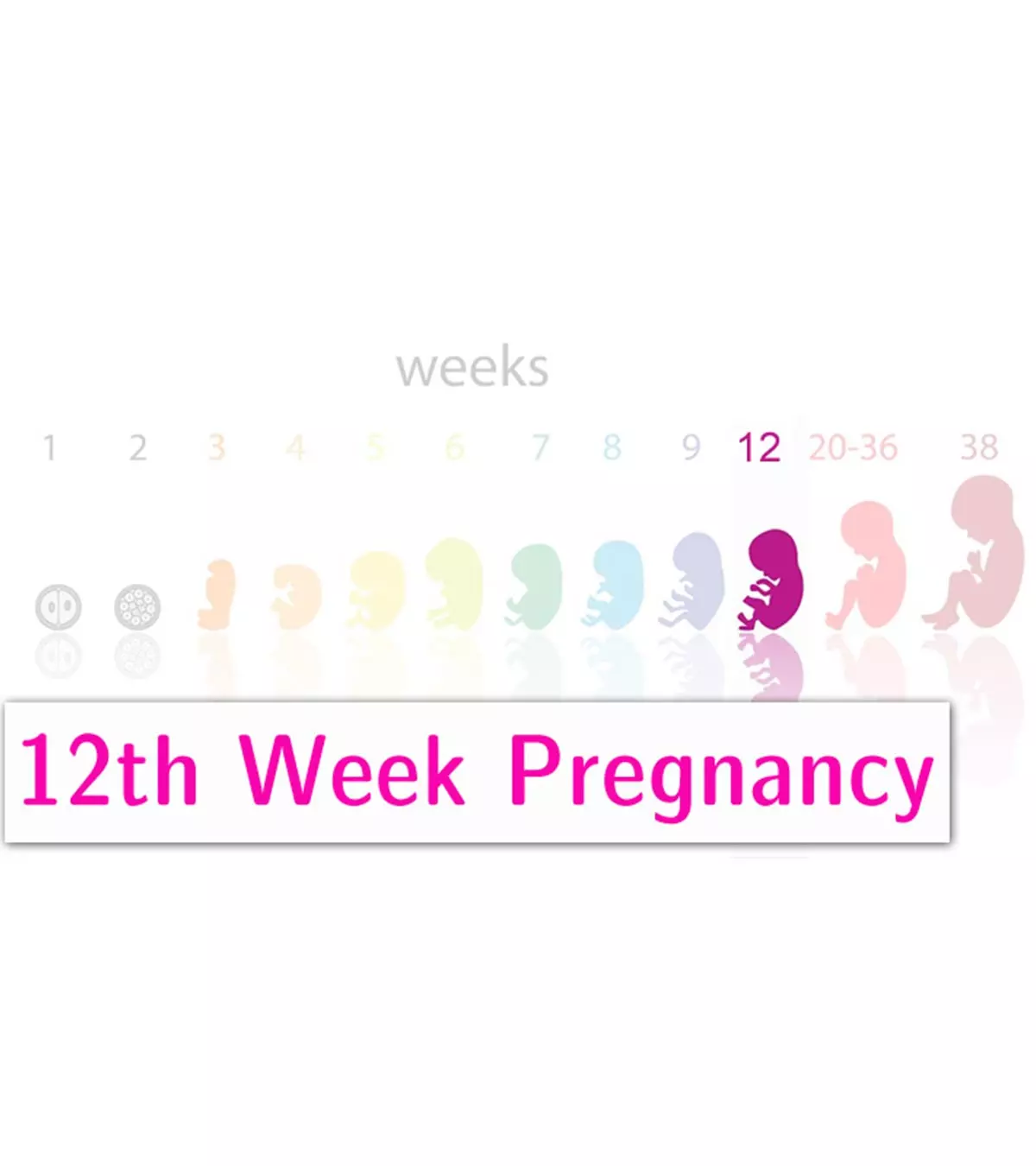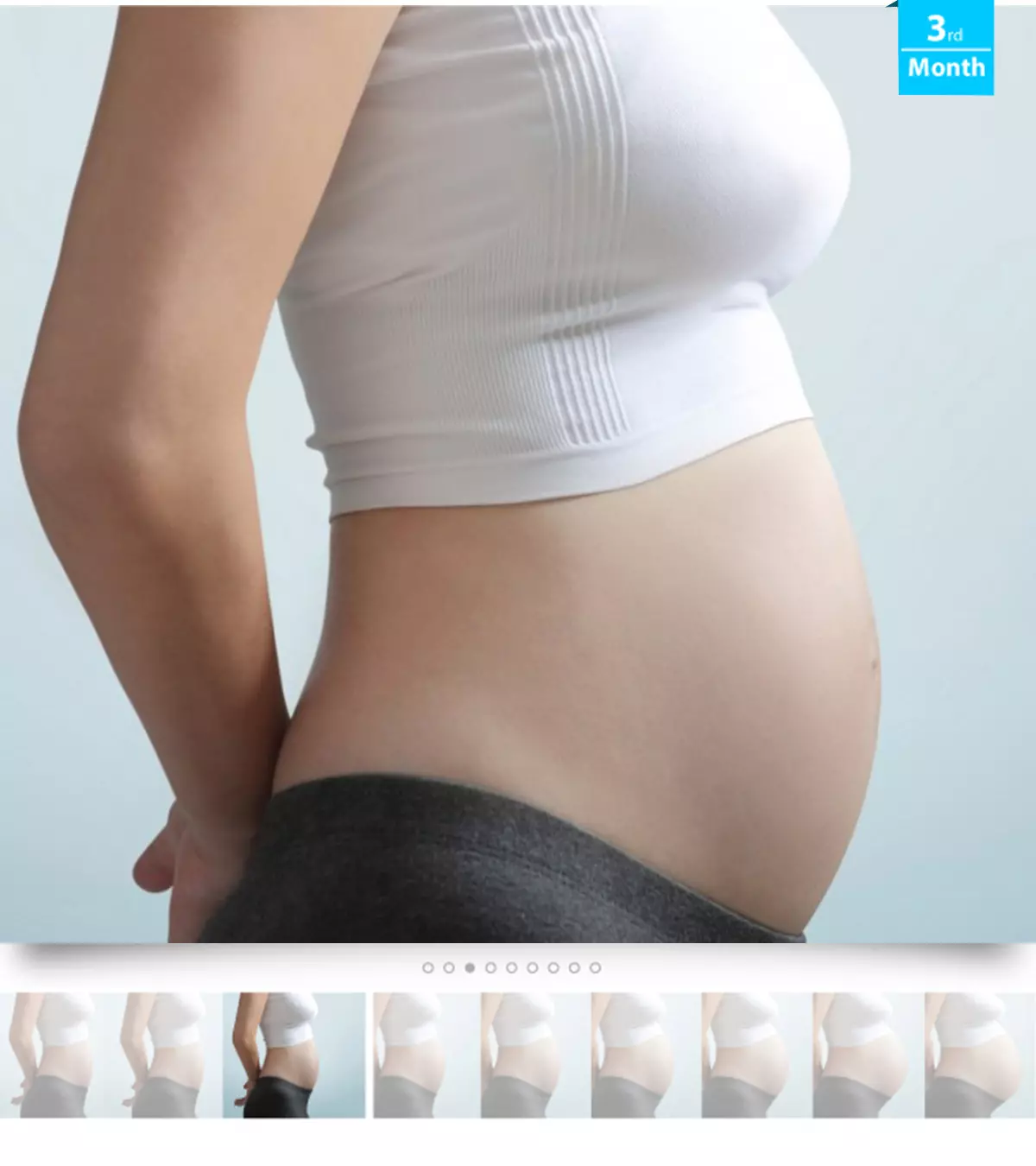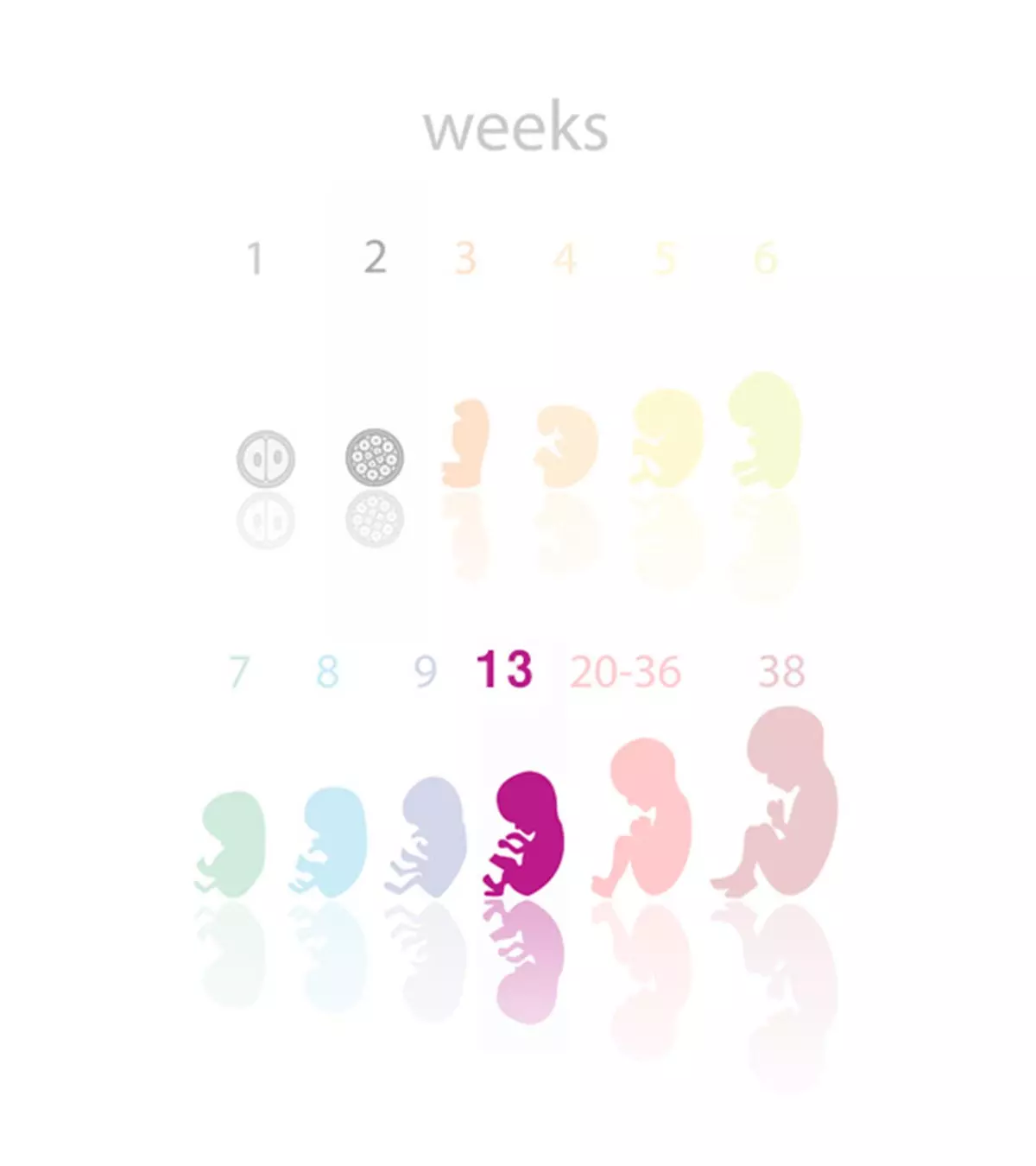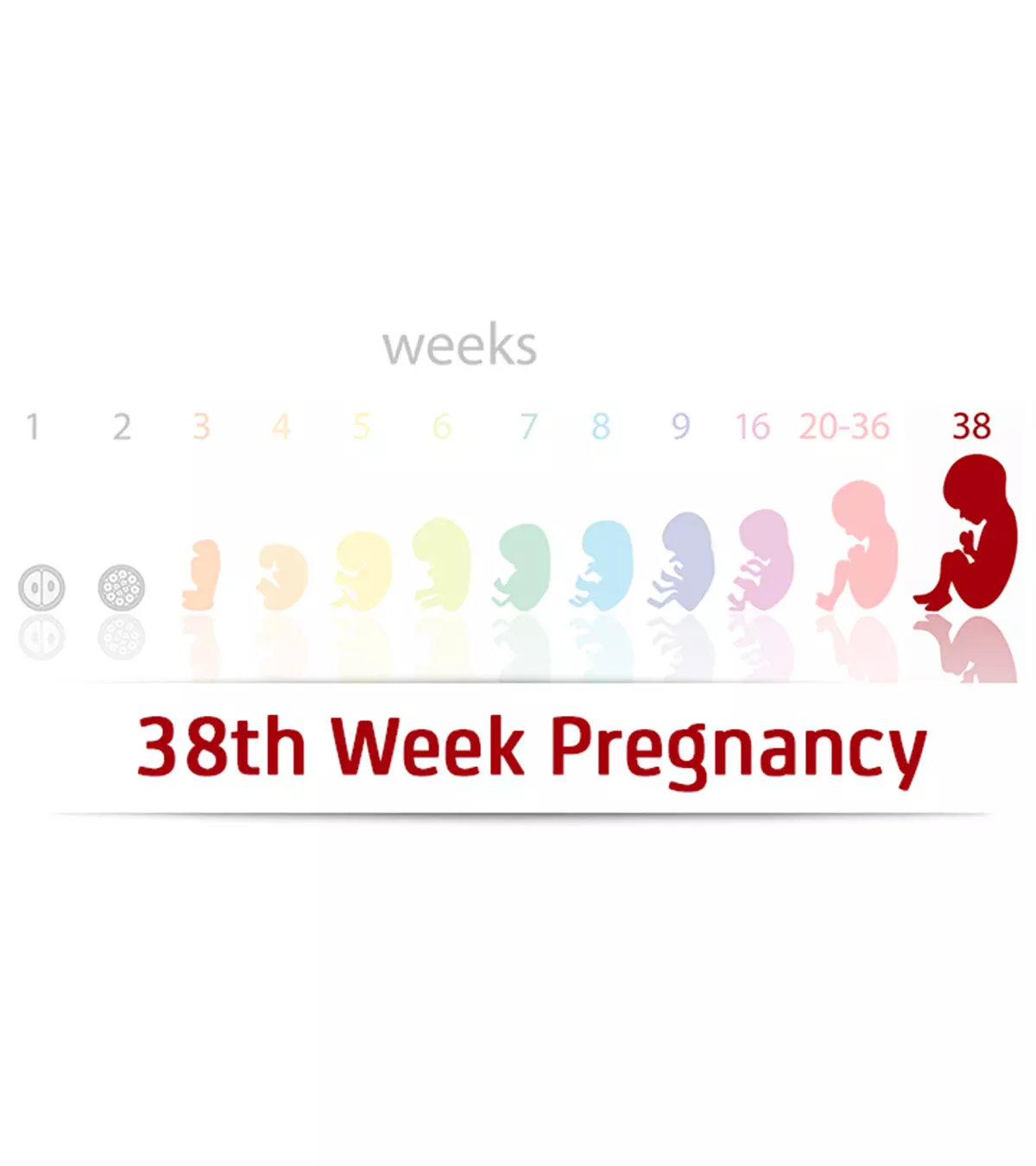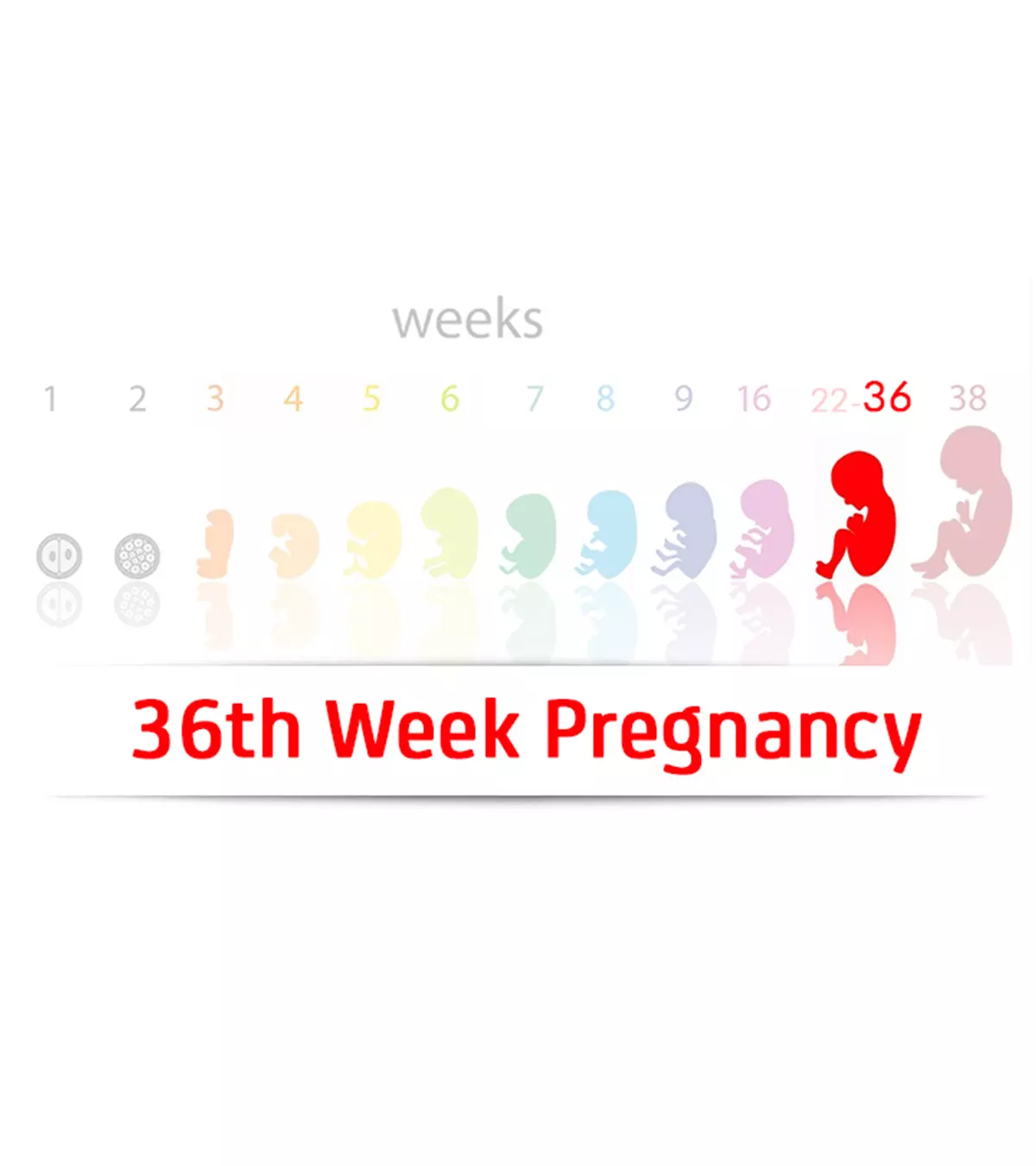
Image: Shutterstock

Key Pointers
- At 36 weeks, a baby weighs 6.30 lbs (2.859 kg) and measures 19.13 inches (48.6 cm).
- The baby’s head grows proportionally to the body, while the vernix, a protective layer of the skin, thickens.
- Limbs are fully formed, ears have earlobes, lungs grow faster, muscles are toned, the digestive system is fully developed and bones are hardening.
- 36th week of pregnancy is characterized by weight gain, swollen feet and ankles, Braxton Hicks contractions, hip pain, and milky-white vaginal discharge.
- Physical changes include an itchy and swollen abdomen, trouble sleeping, discharge of colostrum, and a change in the center of gravity.
How Many Months Pregnant Are You In The 36th Week?
In the 36th week, you are in the eighth month and the third trimester of pregnancy. You are just a week away from full term.
How Big Is Your Baby At 36 Weeks?
This week, babies are usually about the size of a large cabbage (1). An average baby measures 19.13in (48.6cm) in length and weighs about 6.30lb (2.859kg) (2).
Baby Development In The 36th Week
| Body Parts | Development stage |
|---|---|
| Head | The size of the head is in proportion to the size of the body (3). |
| Skin | The protective coating on the skin, called vernix, gets thicker. There’s an increase in body fat (4). |
| Lungs | Will develop faster this week on (5). |
| Lanugo | Remains on the head but disappears from the face (6). |
| Limbs | Fully formed with fingernails and toenails. |
| Ears | Earlobes that are soft, with little cartilage, are formed. |
| Muscles | Are fully toned, and the baby can turn and lift the head. |
| Bones | All the bones in the body, except the skull bones, continue to harden at this time. The skull bones stay separated and soft until after the birth, to make the baby’s descent through the cervix smoother (7). |
| Digestive system | Is fully developed and ready to deal with breast milk. |
Fetal position and movements: By the 36th week, the baby attains a head-down position deep into your pelvis
. The movements will be lesser compared to the previous months, due to the insufficient space inside the uterus. There will be more leg and arm movements and fewer squirming movements. Since the baby is head-down, you will feel the kicks mostly under your ribs.
What Symptoms Of Pregnancy Do You Experience In The 36th Week?
The symptoms in the 36th week are more or less similar to those you have been experiencing in the last couple of months. They include:
- Weight gain: An average weight gain of one to two pounds per week during the third trimester of pregnancy is considered safe, as recommended by the American Pregnancy Association (APA) (8). However, in case of women who have BMI less than 18.5 and greater than 24.9, the recommended weight gain rates usually range in between 0.5 to one pound.
- As the baby moves down into the pelvis, the pressure from the diaphragm is released, making it easier to breathe (9).
- You could feel nauseated, due to some bodily changes in the last few months. Slowed digestion, combined with the uterus’ pressure on the stomach, can push the food upwards into the esophagus, resulting in nausea and vomiting.

- Body aches, frequent urge to urinate and anxiety about the delivery can cause trouble sleeping.
- You may experience pressure and discomfort in the pelvic area when the baby engages the head deep into the pelvis.
- The growing uterus’ pressure on the rectal veins causes the blood vessels to swell up in that area, resulting in hemorrhoids.
- The growing uterus also pushes the stomach acids into the esophagus, causing heartburn.
- As the digestion process slows down, the food remains in the digestive tract for a long time, making you feel bloated and gassy and can cause constipation.
- The excess water retention in the body causes swelling of feet and ankles.

- Braxton Hicks contractions are irregular and painless contractions that help prepare your body for labor. These contractions may increase in frequency as your due date nears, indicating your body is preparing for childbirth.
- Fatigue is quite common towards the end of pregnancy.
- The pressure exerted by the enlarged uterus increases the frequency of urination.
- The pregnancy hormones relax the joints, which can lead to hip pain.
- As there is a shift in the center of gravity of the body, you may feel clumsy. With just four weeks to go, you start experiencing bodily changes that indicate your baby is on track.
Julia Goolia, a mother of three, reflects on her experiences during the 36th week of her fourth pregnancy. She remarks, “I seriously think I pee nearly every hour now, which is absurd and annoying, but I’m also trying to force down the fluids more than ever with this summer heat wave we’re experiencing. When I drink more and have to pee more, it seems like I have more BH contractions, just because there is so much pressure down there! I can feel him punching my bladder and cervix and definitely feel the ‘lightening’ sensation that I can breathe easier and have more room up top now (i).”
 Point to consider
Point to considerChanges In The Body In The 36th Week
Your body is likely to undergo some of these physical and emotional changes during pregnancy. Read on to learn about the changes this week.
Physical changes:
- Itchy and enlarged belly. The enlarged belly makes your movements difficult and even causes trouble sleeping. Women pregnant with twins may deliver around this week.
- Milky white fluid discharge from the breast begins. This fluid is called colostrum.
- Stretch marks are evident.

- Breasts are enlarged with darker nipples and areolas.
- Prominent linea nigra.
 Things to know
Things to knowEmotional changes:
- Mood swings
- Nesting instincts
- Anxiety
- Fear of labor
If the symptoms feel abnormal, or it feels like you may be in labor, go to the doctor immediately.
When To Call The Doctor?
- If there are any significant changes in the fetal movement.
- Sudden weight gain, blurred vision, persistent headache, sudden swelling of hands and face, lightheadedness, abdominal pain, and breathlessness.
- Dark yellowish or orange colored urine with or without odor, accompanied by lower back pain or abdominal pain.
- Vaginal itching or burning sensation while urinating.
- Dry mouth and extreme thirst accompanied by fatigue, blurred vision, or dizziness.
- Unilateral swelling or tenderness in the leg, with or without pain.
Your OB/GYN Visit
During your prenatal care appointment this week, the doctor will check your:
- Weight
- Blood pressure
- Urine test
- Fundal height
Other tests include:
- Ultrasound: To check the health and position of the baby as well as to monitor cervix dilation and effacement. Biophysical profiling is done to check the heart rate, length, and weight of the fetus.
- Group B strep test: A screening test of the vaginal and rectal swabs is done to check for Streptococcus group B infection. In case of a positive test result, antibiotics will be administered intravenously during the labor (for a vaginal birth) (9).

If the symptoms are typical and the pregnancy progresses smoothly, continue to care for yourself until it’s time for labor.
Tips For The Mom-To-Be
- Avoid jerky movements and get up or off the bed slowly when you are lying down.
- A warm bath helps relieve hemorrhoids, leg cramps, and back pain.
- Avoid carbonated drinks, citrus, spicy, and deep-fried foods as they worsen heartburn.
- Eat home-cooked meals
- Take your prenatal vitamins as prescribed by your doctor, and attend regular check-ups.
- Walking helps boost your energy levels and lets you sleep soundly and prevents the risk of sleep deprivation.
- Stay hydrated. Avoid drinking water or drink less one hour before going to bed, to reduce the frequency of urination at night and to avoid a disturbed sleep.
- Wear loose and comfortable clothes.
- Get a massage for body aches and back pain.
- Do not take OTC medicines without the doctor’s advice.
- Engage yourself by reading books on postpartum recovery and breastfeeding.
- Connect with your family and friends.
- Start packing your maternity bag. Keep all the essentials such as nursing pads, sanitary pads, comfortable clothes for the hospital, diapers, and clothes for the newborn ready.
- Discuss with your doctor the possibility of a cesarean section or VBAC if you have had a c-section.

- Discuss with your doctor about the possibility of cesarean or VBAC, if you had a previous c-section.
 Point to consider
Point to considerDiscuss the delivery options with your partner and seek his help whenever necessary. Also, do not hesitate to contact a doula or a midwife if you have any concerns.
Tips For The Dad-To-Be
Your partner can be your primary support system. Here’s what he can do.
- Help with daily household chores, and prepare for infant care, including diaper changing sessions.
- Be with you during the prenatal visits.
- Make sure that the hospital bag is ready
- Consider buying baby gear essentials to prepare for the newborn’s arrival.
- Keep the documents necessary for delivery at the hospital ready.
- Start looking for a good pediatrician around your place.
- Spend quality time with you and help you in planning the baby’s nursery.
- Accompany you during pregnancy, parenting, and childbirth education classes.
- Be your partner during the workout sessions.
- Plan a day out, dinner or picnic.
Frequently Asked Questions
1. Is the 36th week good for delivery?
A delivery this week is not recommended unless you have a complication (such as preterm labor). Furthermore, a study revealed that babies born in the late preterm (34–36 weeks) delivery might have a higher risk of complications, such as cognitive disorders (10).
2. Why is my belly so hard at 36 weeks?
You may feel your belly temporarily turning hard during this week. If it continues for too long or is accompanied by pain, you must call your doctor immediately (11).
3. Can I still exercise at 36 weeks pregnant?
You can continue exercising as long as you feel well and comfortable and stay active right up to the birth of your baby. Low-impact activities such as walking, swimming, and gentle stretches are recommended (13).
4. Is it safe to travel at 36 weeks pregnant?
Traveling long distances at 36 weeks may not be advisable, especially if you are carrying twins or have certain pregnancy complications, as you are very close to your delivery date (14).
5. What are the signs of preterm labor at 36 weeks?
Signs of preterm labor may include vaginal fluid leakage, vaginal bleeding, back pain, contractions, and pelvic pain. Seek immediate medical attention if you experience such symptoms at 36 weeks (15).
6. Can I still have sex at 36 weeks pregnant?
It is considered safe to have sex at any stage of pregnancy as it is not likely to hurt your baby. However, it is advisable to discuss with your doctor to rule out any medical conditions (early cervix dilation, leaking, placenta previa, vaginal bleeding, and sexually transmitted diseases) that may contraindicate having sex (16).
7. Can I still work at 36 weeks pregnant?
You may continue working as long as it is safe and comfortable. The work hours, the requirement of traveling, exposure to chemicals or environmental pollutants, and the nature of work often decide how long it is safe during pregnancy. Consult your healthcare provider to clarify your doubts (17).
The 36th week of pregnancy is when you are in the eight-month and final trimester and closer to the due date. When you reach this stage of gestation, you are heading closer to your due date, and the waiting time is almost over. However, you must continue to follow a healthy diet, routine, and medical advice given by your doctor. Be calm yet mindful of any changes in your body or baby’s movements, and do not delay seeking medical help if you have any concerns.
Infographic: Pregnancy Symptoms During 36 Weeks Of Gestation
Entering the 36th week of pregnancy means you are just a week or two away from welcoming your baby. However, with the happiness and excitement of childbirth, you’ll experience many pregnancy-related symptoms. Check out the infographic below to learn about pregnancy symptoms at 36 weeks gestation.
Some thing wrong with infographic shortcode. please verify shortcode syntaxIllustration: 36th Week Pregnancy: Symptoms And Baby Development
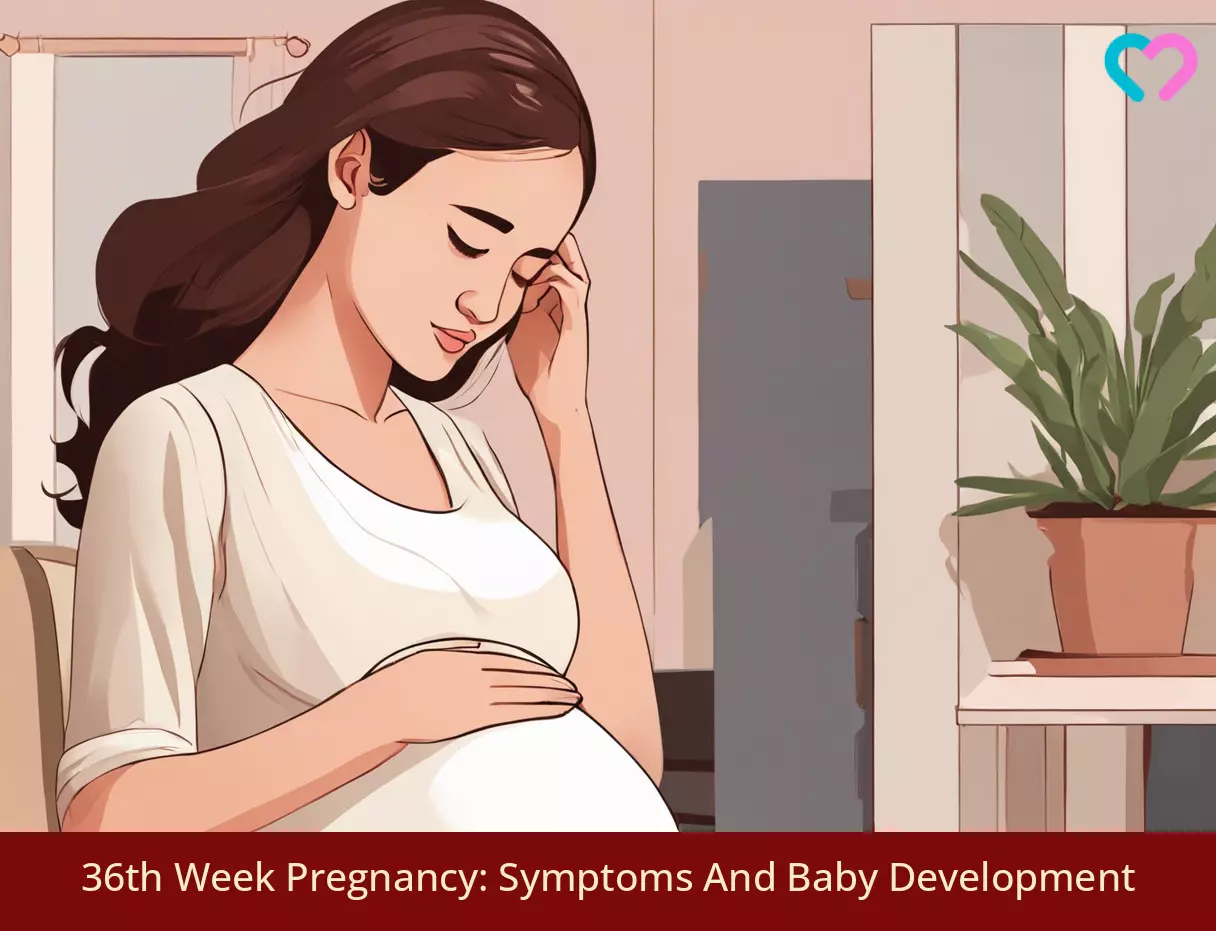
Image: Stable Diffusion/MomJunction Design Team
It’s almost time! Learn what to expect at 36 weeks pregnant and get tips and advice to help you prepare for the big day in this video!
Personal Experience: Source
MomJunction articles include first-hand experiences to provide you with better insights through real-life narratives. Here are the sources of personal accounts referenced in this article.
i. 36 weeks | Baby #4.https://julia-transition.blogspot.com/2017/06/36-weeks-baby-4.html?m=0
References
- 36 weeks pregnant.
https://www.nhs.uk/start4life/pregnancy/week-by-week/3rd-trimester/week-36 - Fetal Development.
https://embryology.med.unsw.edu.au/embryology/index.php/Fetal_Development - 36 weeks pregnant.
https://raisingchildren.net.au/pregnancy/week-by-week/third-trimester/36-weeks - Stages of pregnancy.
https://womenshealth.gov/pregnancy/youre-pregnant-now-what/stages-pregnancy - Pregnancy – week by week.
https://www.betterhealth.vic.gov.au/health/healthyliving/pregnancy-week-by-week - Fetal growth and development.
https://doh.sd.gov/media/bnemplje/fetal.pdf - How your fetus grows during pregnancy.
https://www.acog.org/womens-health/faqs/how-your-fetus-grows-during-pregnancy - Pregnancy weight gain.
https://americanpregnancy.org/healthy-pregnancy/pregnancy-health-wellness/pregnancy-weight-gain/ - Pregnancy test (hCG).
https://www.testing.com/tests/pregnancy-test-hcg/ - Sarah R. Murray et al. (2017); Long term cognitive outcomes of early term (37-38 weeks) and late preterm (34-36 weeks) births: A systematic review.
https://www.ncbi.nlm.nih.gov/pmc/articles/PMC5721566/ - 36 weeks pregnant – all you need to know.
https://www.tommys.org/pregnancy-information/im-pregnant/pregnancy-week-by-week/36-weeks-pregnant - Pregnancy Week 36.
https://americanpregnancy.org/healthy-pregnancy/week-by-week/36-weeks-pregnant/
Community Experiences
Join the conversation and become a part of our nurturing community! Share your stories, experiences, and insights to connect with fellow parents.
Read full bio of Dr. Sangeeta Agrawal
Read full bio of shreeja pillai
Read full bio of Rebecca Malachi
Read full bio of Aneesha Amonz






